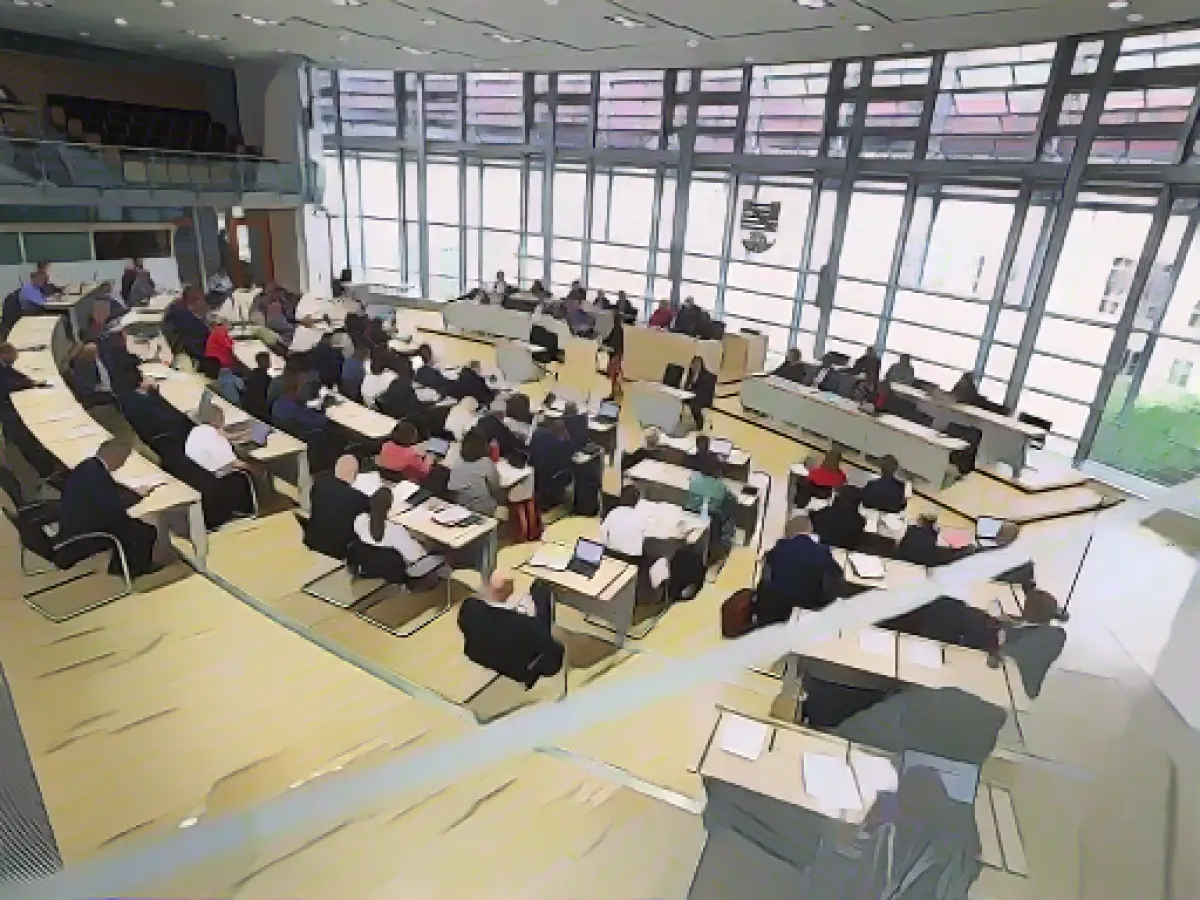Parliamentary Investigations and Ethical Standards in Germany
Political figures in Halle are under the microscope, with the public prosecutor's office investigating Elke Simon-Kuch (CDU) for allegations of subsidy fraud. The authorities confirmed these claims following inquiries from MDR. The probe concerns suspicions that Simon-Kuch, a member of the state parliament and CDU politician from Weißenfels, failed to meet the conditions required for short-time work benefits. The money in question has since been repaid, as confirmed by senior public prosecutor Heike Geyer.
Simon-Kuch's lawyer challenged the allegations, denying their validity and accusing the initial presentation as an attempt to compromise her reputation. A press release was promised to address the situation once the background to the accusations had been clarified.
As a sitting member of the Infrastructure Committee and the Science Committee in the state parliament, and the managing director of an advertising agency and vice president of the Halle-Dessau Chamber of Industry and Commerce, Simon-Kuch continues her parliamentary duties amidst the fraud allegations. This situation stirs up potential discussions about ethical standards and transparency within parliamentary work.
Transparency and Ethical Standards in German Politics
The Elke Simon-Kuch case is not an isolated affair, as transparency in German politics is a contentious issue faced by political parties. Factors such as the lack of donor caps and the need for more stringent reforms have brought these concerns to the forefront.
According to anti-corruption watchdogs like Transparency Germany, political parties in Germany should be subject to an upper limit on donations, such as €50,000 per donor per year per party. This would help prevent large, opaque donations, which could potentially impact politics and democratic trust.
The recent donation to the far-right Alternative for Germany (AfD) from a former official of Austria's far-right Freedom Party (FPÖ), totaling almost €2.35 million, raised concerns about foreign influence and the need for greater transparency.
The investigation against Elke Simon-Kuch may contribute to broader discussions regarding accountability and transparency in parliamentary work. By highlighting the requirement for stricter regulations and more transparent financial practices within political parties, the ongoing probe could possibly spur necessary changes.
Meanwhile, Germany's ranking on Transparency International's Corruption Perceptions Index has dropped from 9th to 15th place, indicating the need for improvements in combating corruption and promoting transparency. The German government is urged to address these concerns, particularly the publication of all donations above €10,000 along with donor information in party annual reports.
Conclusion
The investigation against Elke Simon-Kuch is a reminder of the importance of ethical standards and transparency in German parliamentary work. As political financing and party financing transparency remain significant issues in Germany, the public scrutiny of allegations of misconduct chips away at democratic trust. The ongoing probe into Simon-Kuch could potentially signal changes in legal frameworks and financial practices, ensuring greater transparency in German politics.








